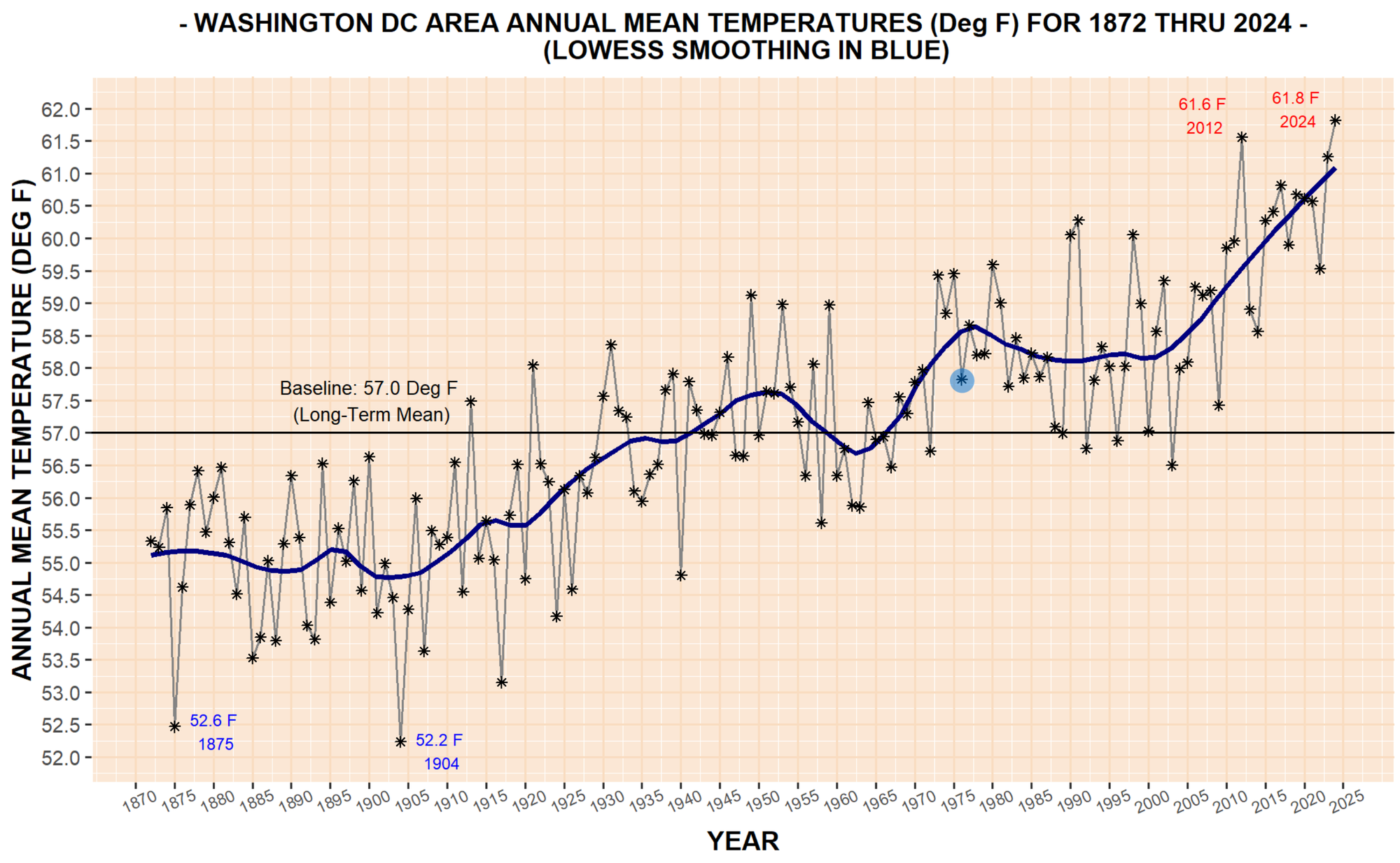All the President's Men
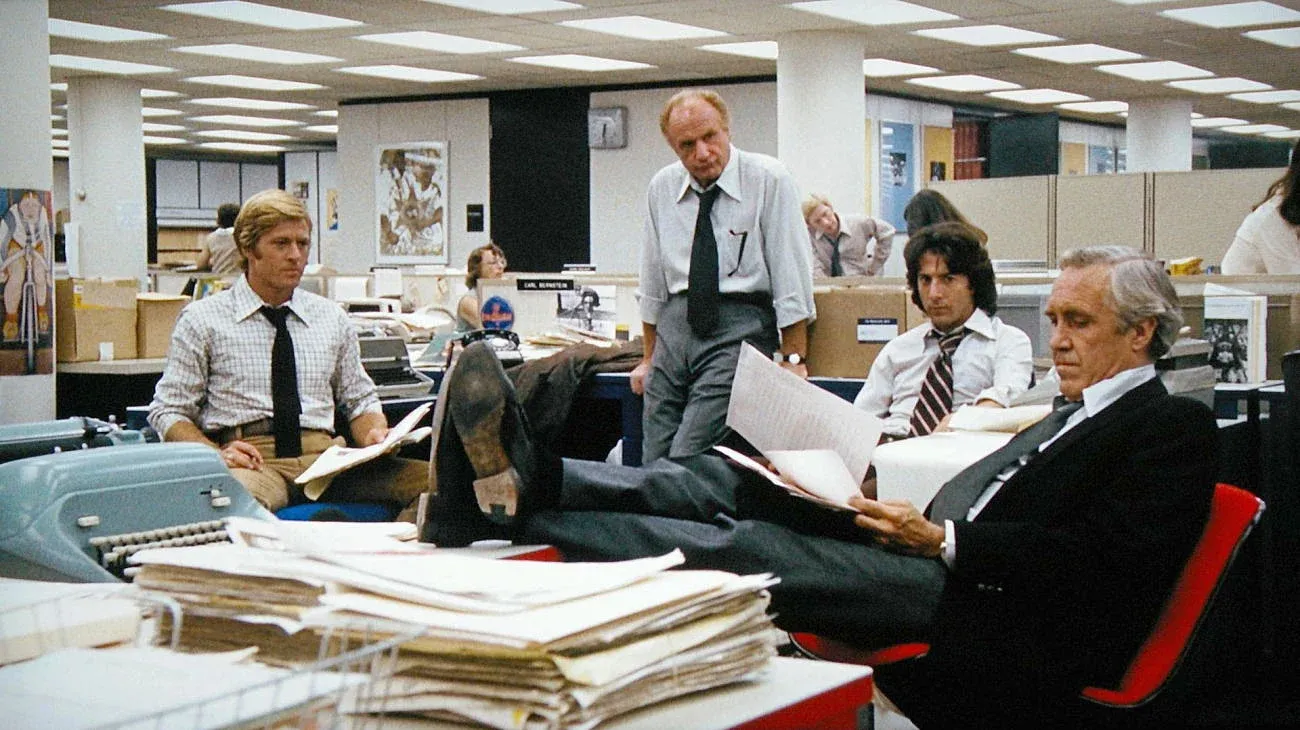
1976
"Your daddy's FAY-mus! Your daddy's FAY-mus!"
I can hear those singsong taunts so clearly even today. I had arrived at Mrs. Johnson's tiny kindergarten classroom in my kilt, long socks, and blue blazer, thinking it was just another day at this suburban Connecticut school. Here are a couple photos of me from that time:
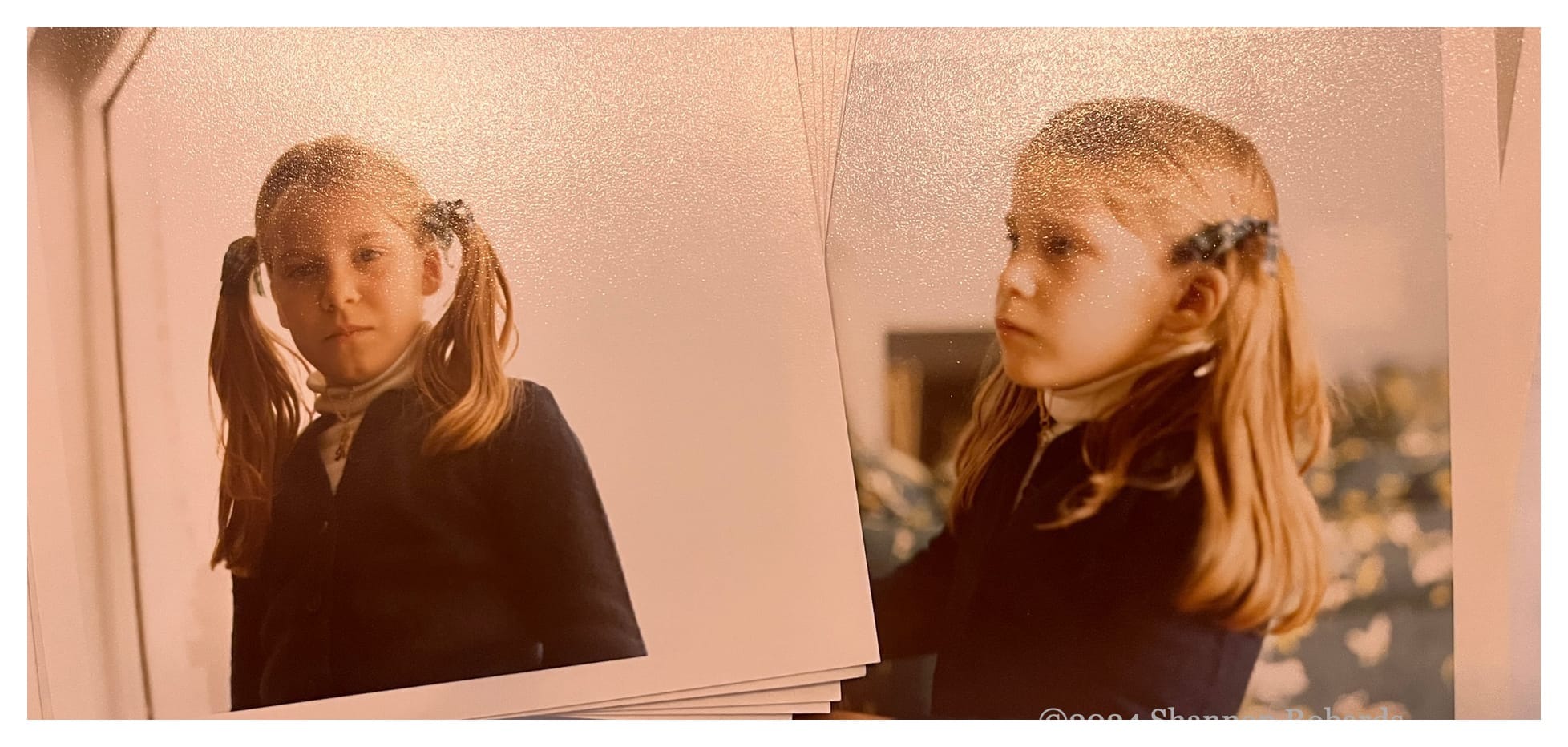
Instead, before we settled in to our desks, I was confronted by Justine (not her real name), a tall and domineering girl, who shouted with a sly smile: Your daddy's FAY-mus!
I was totally blindsided by this news, and I wasn't quite sure what "faymus" meant. It sounded bad, so, hot-cheeked and embarrassed, I denied any knowledge of what he had done, or even what his job was, which was true. I had no idea my dad was an actor. Why would I, at age five? Then our teacher called class to order and we went to our desks and I heard nothing else from Justine about it. We probably played Foursquare together at recess – classic frenemies.
In 7th grade, my son found out his grandfather was a faymus actor when his teacher showed this YouTube clip to the whole class (he did know his grandpa was an actor). It was at that time I watched his acceptance speech for the first time, at age 40, ten years after my dad had died.
As I watch, I can see his playful irreverence – "Am I holding that right?" – and when he won again next year for Julia, Dad didn't even show up. (He was starring in Eugene O'Neill's A Touch of the Poet on Broadway.) He had a degree of disdain for events whose main function was to be seen with "the greats and the near-greats," as he would say. But I do think he was proud of the good plays and even good movies he did, and it must have felt good to be recognized. My mom sure was – look at her smile.
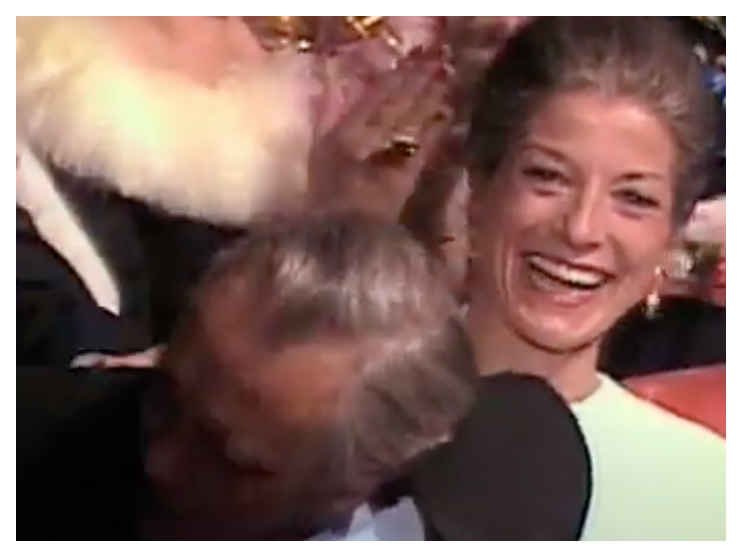
She had been through some things with him in a few short years. Marrying in to the instability of alcoholism, four stepchildren, three ex-wives. Becoming a mother herself. Jason's near-fatal drunken car accident in 1972. For him to come out alive and sober and smiling on the other side of The Accident was nothing short of a miracle. More on The Accident and its aftermath later.
Obviously my parents were not at home when I got back from school that evening – they were in LA. I don't recall asking anyone about this “faymus" thing, and I don't recall anyone telling me about the award. As I grew older, it was just apparent that my dad was an actor, presumably the same way that many kids figure out their parents' professions. And without any fanfare, over time, the Oscars and the Tony and Emmy and other awards slowly appeared on the fireplace mantel at the far end of the house, along with some old smoking pipes and other knick-knacks. We loved playing with those pipes.
Ironically, by the time he won an Oscar, Dad was not so interested in being famous. He had been through the good and bad of fame already, especially under the harsh limelight of big time Hollywood celebrity while married to Lauren Bacall. He had witnessed his own father's heartbreaking ups and downs in show business. He knew how fickle fame could be, and how unfair Hollywood often was. Finally, he knew where his artistic soul was: with the theatre, always. He knew theatre people were his people, especially José Quintero, Colleen Dewhurst and Eugene O’Neill.
And, for the first time in his life, he could consider his family a safe haven. Shortly after he won the Oscar, he and my mom were able to purchase a house for the first time. This stable base, a real home, was so important for my dad, who had primarily known instability and insecurity for his 55 years. He had been in rentals his whole life, from the Hollywood Hills of his childhood to cold-water flats in Manhattan and even a house in Connecticut. He had done the work to confront his drinking and get sober. My mom worked incredibly hard, and sacrificed her own career ambitions, to make this house a home for him and for us as a family. This is not just the physical home, but the emotional home.
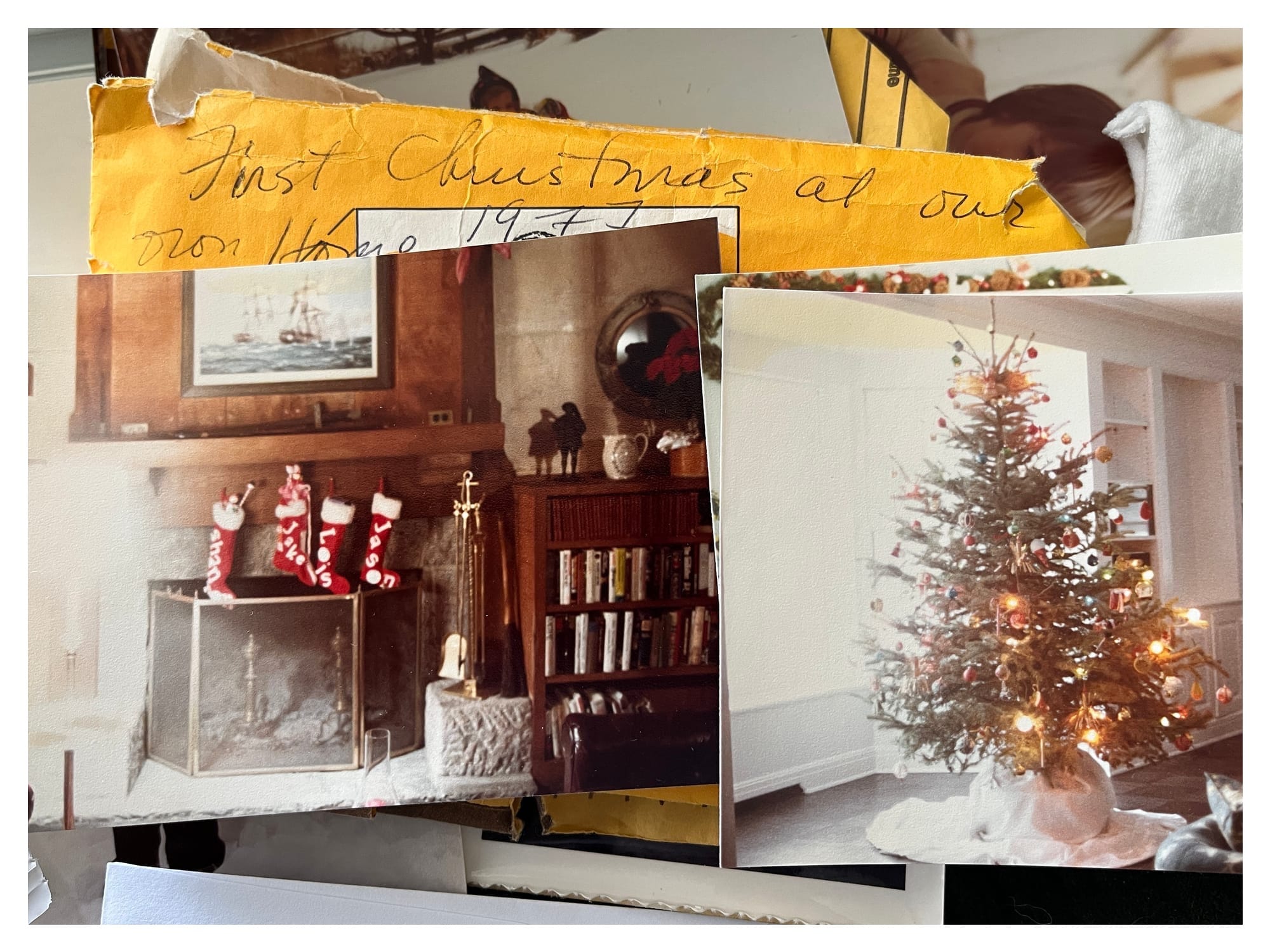
About the Movie
All the President's Men is considered one of the great American films, both for its subject matter and execution. It tells the story of two lower-level Washington Post reporters investigating and breaking open the Watergate scandal that ultimately led to the resignation of President Richard Nixon. The reporting, subsequent book and then the hit film made Bob Woodward and Carl Bernstein legends far beyond print journalism.
Casting
As Robert Redford tells it, he wanted to cast Jason as Washington Post editor Ben Bradlee partly because, during the 1960 television production of The Iceman Cometh, Robards, the star, was kind to Redford, who was making his debut in a very small part. By the time he was trying to get ATPM made, Redford was a massive movie star.
Redford on casting Robards
As Redford says above, ever so gently, my dad had been on a "downward trajectory" – practically banned from any major productions for his alcoholism and a near-fatal drunken car crash. But casting Robards was Redford's way of paying back a kindness. And of course he thought he would be great for the part. Which he was.
My dad said in an unpublished recording for his own memoir:
My first major project after sobriety was All the President's Men. I was damned lucky to get it. Dustin Hoffmann and Bob Redford were the only ones cast at that point. After that, the director Alan Pakula was doing the casting, and there were many people in consideration for the part of Ben Bradlee.
Alan knew I'd been a drinker. We'd known each other since Circle in the Square [New York off-Broadway theater] days, and the last couple of times I'd seen him, I'd been drunk. The last time, I had insulted him in his own home. I said something like, "Alan, why don't you go to bed, you're such a bore!" That sort of drunken insult, even though I adored him.
Fortunately, he's a wonderful, sober man, and he understood that in some way. But he did want me to come over to his house and have a talk before I got the part. I think he wanted to see me to make sure I wasn't going to get drunk and tell him to go upstairs to bed again. We met, and I mentioned the incident. I told him I felt terribly guilty about it, but he didn't take it as seriously as I did. I told him how well I felt, how happy I was to be not drinking.
I probably didn't need to say it. He could see it. Everything starts coming back after you stop… [from the Lawrence Grobel transcripts, 1980]
Thoughts about the movie
There's been a lot of wonderful commentary and analysis of this film – I recommend Ann Hornaday's fantastic piece. Here you'll get my own scattershot impressions as a movie goer and curious person.
Watching it now, it's still a gripping movie. It's astonishing that it holds even my teens' attention, given that there's so little physical action or dramatic conflict to go with. The script apparently had tremendous issues (see Hornaday's piece), but ended up being a tight procedural film that ratchets up in intensity as the reporters "follow the money."
There's so little visually to work with, but Alan Pakula and cinematographer Gordon Willis create an incredible mood, contrasting the darkness of the world of secrets and "non-denial denials" with the brightness of the newsroom, the place that shines a light on truth. I love that Gordon Willis was known as “The Prince of Darkness” for his moody, chiaroscuro cinematography.
The performances are all-around stunning. The supporting staff of the Washington Post are played by two of the great old guard of stage and cinema: Jack Warden and Martin Balsam. Jane Alexander crushes one pivotal scene with Dustin Hoffmann and earned an Academy nomination for Best Supporting Actress. Dustin Hoffmann and Robert Redford, as Bernstein and Woodward, are a great study in personality contrasts, two guys who would probably never hang out but for their shared goal.
From Hornaday's article:
Both Redford and Hoffman spent considerable time with the real-life men they were playing (Hoffman even wore Bernstein’s watch during production). Jason Robards, who was cast as Ben Bradlee, took the opposite tack: After meeting Bradlee and spending a day observing him in the newsroom, Robards left “and never came back,” according to Bradlee’s widow, former Washington Post Style reporter Sally Quinn. The result was a performance that earned Robards an Oscar. “He absolutely got Ben,” Quinn says. Bradlee was thrilled with the portrayal, even though Robards hadn’t been his first choice....
As Washington Post editor Ben Bradlee, to me, my dad has this tremendous authority while also being very relaxed. Bradlee exhibits the type of confidence that is earned from great competence. He doesn’t have to prove himself. There’s an informality in the way he speaks, sweary and mumbling a little, his feet on the desk, contrasting with the gravitas of his voice and his incredible use of eye contact.
In the beginning of the film, Bradlee is mostly unseen or kept at a distance as Woodward and Bernstein work in the newsroom and make their way through the story and section editors. The first time Bradlee comes to see them, his authority is established by a long tracking shot of him entering the main newsroom from of his office, and walking up to Bernstein's desk:
He's so definitive. "You haven't got it." Insisting on better. The construction of the film amplifies Bradlee/Robards' power; through long sections of Woodward and Bernstein muddling through calls and dead ends and meetings in the dark, Bradlee punctuates with a line of clarity and definition, like a sunbeam cutting through a shadowy, foggy world. And it's his job, his responsibility. To shine the light. And he's the sun, he doesn't have to yell.
He is also graced with quite a few legendary lines, not all 100% true to events, but still capturing the spirit. The scene below is right near the end. Has one of the great lines in movie history, as well as one of the great sighs, imho.
And that's the crux of it – finding and publishing the truth mattered back then. They took it seriously. The public took it seriously. Bradlee knew this was a singular story, a powerful story, and even if the world wasn't watching just yet, he knew they would, when all the facts were there.
All the President's Men Today
Watching All the President's Men today is such a contrast to what we're dealing with as a country today, rife with "alternative facts" and outright lies told by those at the highest levels and accepted as truth by their supporters. Back in 1973, the country cared about the Watergate hotel break-in, the coverup, about President Nixon's integrity. Once Nixon was caught in this dishonesty, he had to resign.
All the President's Men is a testament to the dogged pursuit of truth and the courage to speak and publish that truth, no matter how challenging or risky that might be. Compared to our digital (and virtual and AI) era, there is a tactile quality to this film, typing on paper, calling on rotary phones, knocking on people's doors. The truth is elusive, but it is out there, and tangible, if you keep looking. There is such a thing as truth in All the President's Men, and our country used to collectively care about civic and scientific facts and truth. If the truth was presented, backed up with actual facts and data, we would believe it. That's not the case anymore.
It's amazing that Network was also made in the same year, as was Rocky and Taxi Driver. What a year.
Network is sort of the evil twin of All the President's Men in its fantastical cynicism towards modern television news. It explores the willingness of news producers and the corporations that own them to exploit anyone and anything for "market share." Equally impeccable in its filmmaking and performances, and equally relevant today. Sadly, it seems that the dark vision of Network was more prescient for our moment, and just today, October 25th, the Washington Post refused to endorse a candidate for president, at the order of its multi-billionaire corporate owner, Jeff Bezos. How far the mighty have fallen. (I’m talking about The Washington Post.)
I remember my dad muttering about Rocky winning the Oscar for Best Picture. I don't know his precise reasons, but I surmise it's partially because All the President's Men was a real film about real issues that were important to our country. Partially because he loved Bob Redford as a person, and admired his great tenacity in getting the film made and being true to the facts. Turns out the Academy would have chosen All the President's Men for Best Picture, at least in 2015.
In my opinion, all three are great films for different reasons. But wow, how about a double-feature of All the President's Men and Network? You'd walk out of the theatre looking like Rocky Balboa.
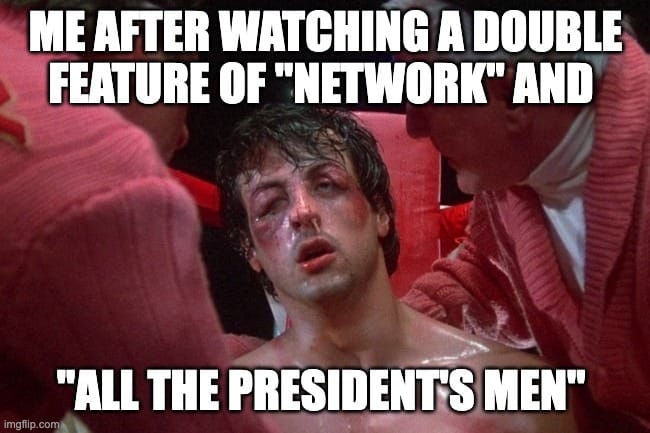
The truth hurts sometimes.
Connections
- Robert Redford was a young actor when he was cast in the teleplay of The Iceman Cometh, in which Jason Robards starred as Hickey on Broadway. The Iceman Cometh was one of Robards' career-defining works. We will cover this soon!
- Richard Nixon was Vice President when he was in the same restaurant as irreverent, boozy Jason, and hilarity ensued. I will be publishing this anecdote.
- Jane Alexander portrays The Bookkeeper in ATPM, also Oscar-nominated for her riveting performance in this single scene with Dustin Hoffmann. Longtime friends, she and Robards would later co-star in Square Dance, Winona Ryder's first film, also co-starring Rob Lowe. More on this movie later.
- Martin Balsam played managing editor Howard Simons. Balsam, of Twelve Angry Men and Psycho fame, was a co-star with Robards in the film version of A Thousand Clowns (for which Balsam won an Oscar for Best-Supporting Actor) and also Tora! Tora! Tora!
- Hal Holbrook, Deep Throat, was in the Lincoln Repertory Theater of Lincoln Center, with Jason back in 1964. They had a long friendship. Jason starred in the Repertory's inaugural performance of After the Fall, by Arthur Miller, directed by Elia Kazan. Also, Faye Dunaway, star of Network, was a new baby actress, fresh from Boston University; she was "Nurse" in Fall.
Then/Now
Population
DC Metro population has grown from 2.5 million in 1976 to 5.5 million in 2024
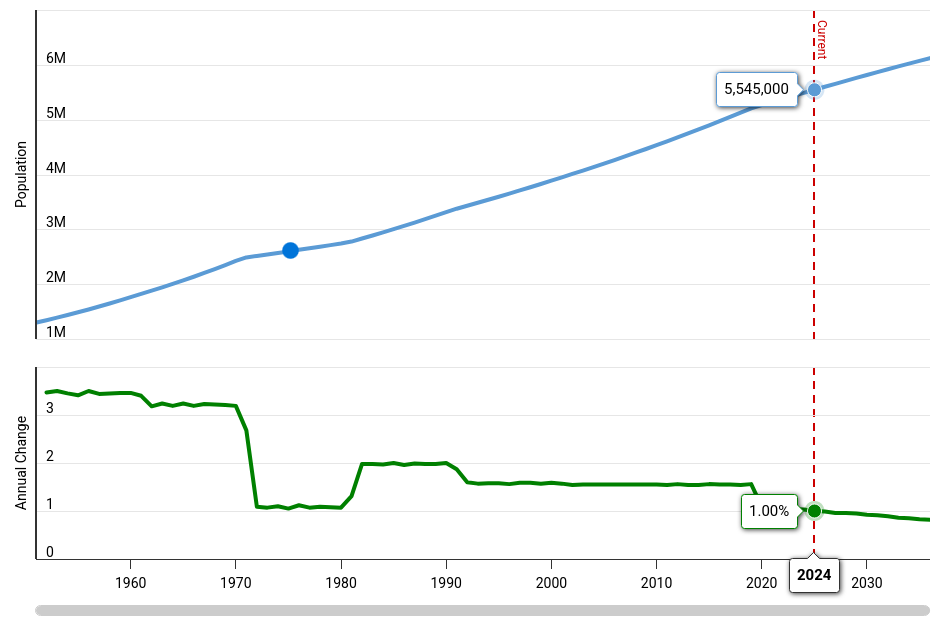
Total Circulation of U.S. Daily Newspapers
The Washington Post has suffered major declines in line with this national trend, peaking in the 1990s. Digital subscriptions have finally provided a boost.
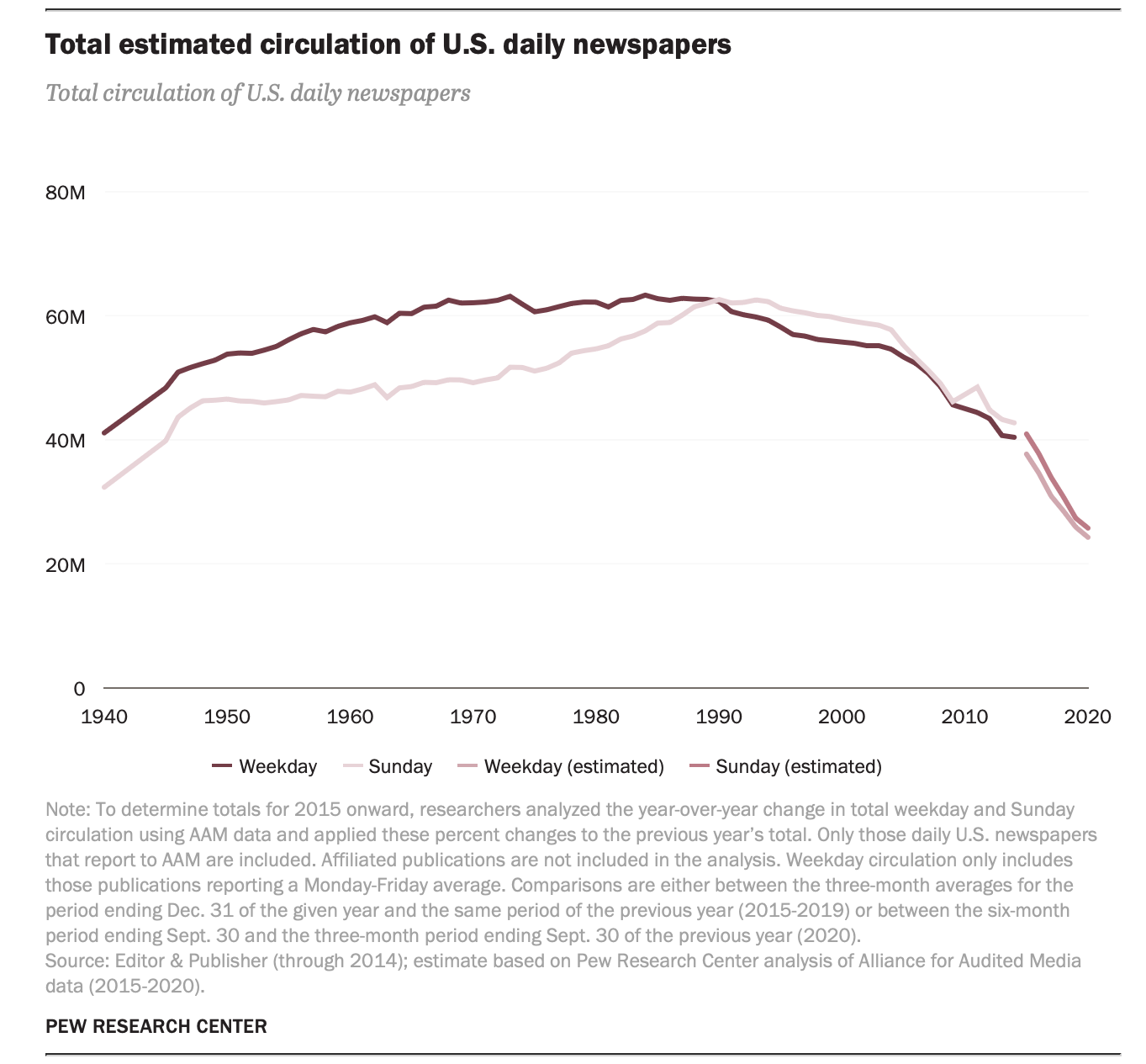
Temperature
Average mean temperature has risen from 57.8º F in 1976 to 61.8º F in 2024. The trend line is from 58.5º to 61.2º, all above the baseline mean of 57ºF. So we're seeing 3-4º rise in temperature, and 6º rise from the 1870s to today.
